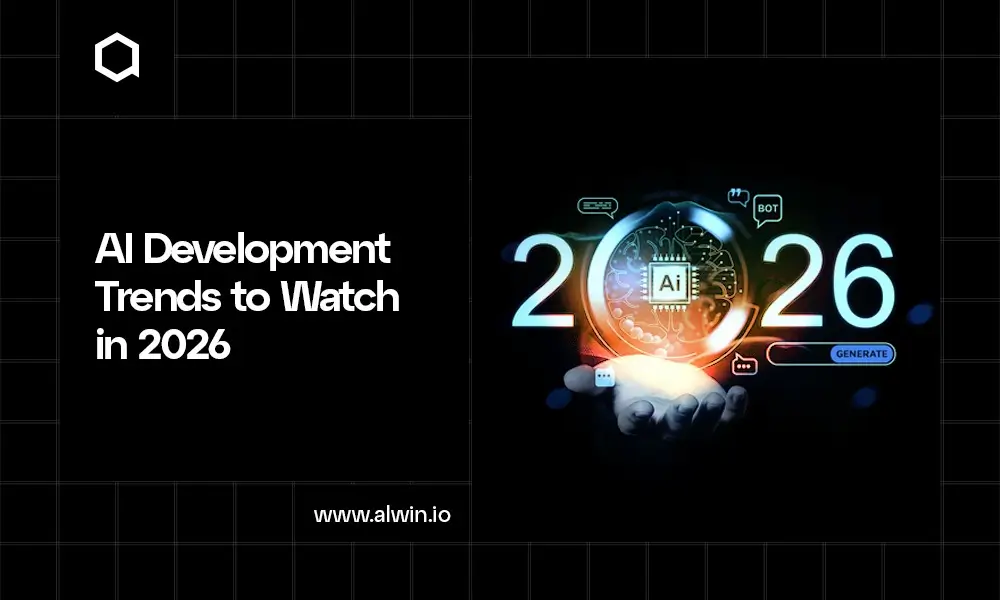Artificial Intelligence (AI), an advanced technology in this transformational digital era is performing dynamically in various fields. It involves creating machines that can perform tasks requiring human-like intelligence, such as learning, problem-solving, and decision-making. AI technologies include everything from chatbots and recommendation systems to complex algorithms used in healthcare and autonomous vehicles.
The impact of AI is transformative, driving advancements across numerous fields. In education, it plays a vital role, enabling students and teachers to enhance themselves through advanced learning. AI aids in diagnosing diseases and suggesting treatments in healthcare. In transportation, it powers innovations like self-driving cars. Overall, AI has the potential to significantly improve efficiency, productivity, and quality of life in many areas. As we continue to advance in this field of AI, a new concept has emerged: Agentic AI. This innovative form of AI is self-possessed to redefine autonomy, adaptability, and intelligent decision-making, offering significant benefits across multiple sectors.
What is Agentic AI?
Agentic AI refers to a form of artificial intelligence that exhibits a high degree of autonomy and can make decisions or take actions independently. With its advanced understanding and decision-making, it can react often in complex and dynamic environments. Unlike traditional AI systems that operate within predefined parameters, agentic AI can adapt its behavior based on new information or changing circumstances. This type of AI exhibits goal-oriented behavior, where it seeks to achieve specific objectives even in complex, unpredictable environments. For instance, in autonomous vehicles, agentic AI enables the system to navigate diverse driving scenarios, make real-time decisions to avoid obstacles and optimize routes without human intervention.
Similarly, in advanced robotics, agentic AI allows machines to perform intricate tasks, adapt to unexpected changes in their environment, and improve their performance over time. The development and deployment of agentic AI have the potential to transform various industries by enhancing efficiency and capabilities, and it also raises important considerations regarding safety, ethical use, and alignment with human values.
Evolution of Agentic AI
The evolution of agentic AI traces a path from early, rule-based systems to highly autonomous agents capable of complex decision-making. Initially, AI relied on fixed rules and databases to perform specific tasks. The introduction of machine learning allowed AI to learn from data, recognize patterns, and make predictions. This was further enhanced by deep learning, which improved capabilities in tasks like image and speech recognition, setting the stage for more sophisticated autonomous systems.
As technology progressed, autonomous agents emerged, capable of operating independently in dynamic environments. Reinforcement learning introduced a method for these agents to refine their behavior through trial and error, receiving rewards or penalties based on their actions. Recent advancements focus on increasing the adaptability and generalization of these systems, with growing attention to ethical and safety considerations to ensure that agentic AI aligns with human values and societal norms.
According to a report by McKinsey, AI could contribute up to $13 trillion to the global economy by 2030, with Agentic AI playing a significant role in this growth.
A survey by PwC found that 72% of business leaders believe that AI will be a key driver of their company’s future growth, highlighting the increasing importance of advanced AI systems like Agentic AI.
Key Features of Agentic AI
Agentic AI is distinguished by several key features that enable it to function autonomously and adaptively in complex environments. These features include:
Autonomy: Agentic AI systems operate independently of direct human control. They can make decisions and take actions based on their programming and real-time inputs, allowing them to perform tasks and solve problems without ongoing human intervention.
Adaptability: These systems can adjust their behavior in response to changing conditions or new information. This flexibility enables them to handle dynamic and unpredictable environments effectively, improving their performance over time through learning and adaptation.
Goal-Oriented Behavior: Agentic AI is designed to pursue specific objectives or tasks. It uses algorithms and decision-making processes to focus on achieving these goals, even in the face of obstacles or changing conditions.
Learning and Improvement: Through techniques such as machine learning and reinforcement learning, agentic AI can enhance its capabilities by learning from experience. This allows it to refine its strategies and improve its performance based on feedback and data.
Real-Time Decision Making: Agentic AI systems can make decisions and take actions in real-time, which is crucial for applications that require immediate responses, such as autonomous vehicles navigating traffic or robotic systems interacting with their environment.
Context Awareness: These systems are often equipped to understand and interpret their environment, allowing them to make informed decisions based on the context. This involves processing sensory data and understanding situational factors to act appropriately.
Autonomous Interaction: Agentic AI can engage with other systems or entities autonomously. This interaction might involve communicating with other AI agents, collaborating on tasks, or responding to changes in its environment.
Benefits of Agentic AI
Agentic AI is transforming artificial intelligence with benefits that greatly enhance enterprise operations:
Enhanced Efficiency: Automates complex tasks, reducing human intervention and speeding up processes, thus improving productivity and resource allocation.
Improved Decision-Making: Analyzes large data sets to provide actionable insights and data-driven recommendations, enabling more informed and strategic decisions.
Increased Productivity: Frees human employees from routine tasks, allowing them to focus on strategic and creative work, boosting overall productivity.
Scalability: Handles growing data and tasks without added complexity, supporting business growth and adaptation to market demands.
Cost Savings: Reduces labor costs and errors through automation, leading to significant long-term savings.
Enhanced Customer Experiences: Delivers personalized and timely interactions by analyzing real-time data, improving customer satisfaction and engagement.
Dynamic Operations: Adapts in real time to changing conditions, ensuring operations remain resilient and responsive.
Workflow Optimization: Optimizes task execution by setting strategic subgoals and choosing efficient paths to achieve them.
How does Agentic AI differ from Other AI Types?
Agentic AI differentiates itself from traditional AI and generative AI through its high level of autonomy and adaptability. While traditional AI systems rely on predefined rules and algorithms to automate specific tasks, generative AI models excel at creating unique content based on data patterns. These systems are designed to operate independently, making complex decisions and adjusting their plans based on changing circumstances. Similarly, Agentic AI goes beyond simply responding to prompts like generative AI models; it proactively makes decisions and takes actions to achieve specific goals, adapting its strategies as needed. This ability to reason, plan, and execute in a dynamic, autonomous manner sets Agentic AI apart from other AI types and opens up new possibilities for intelligent systems to collaborate with humans in complex, real-world environments.
Essential Tools Enabling Agentic AI
Agentic AI relies on a range of advanced tools that enable it to operate with high levels of autonomy and adaptability. These tools facilitate real-time decision-making, learning, and interaction, allowing AI systems to function effectively in complex environments.
Reinforcement Learning: This machine learning technique allows AI agents to learn optimal behaviors through trial and error by receiving rewards or penalties based on their actions. It enables AI systems to refine their strategies and improve performance over time by interacting with their environment.
Neural Networks: Deep learning models, particularly those using neural networks, are crucial for agentic AI. These networks, especially those with many layers, enable the AI to recognize complex patterns and make sophisticated decisions based on large amounts of data.
Multi-Agent Systems: These frameworks allow multiple AI agents to interact and collaborate autonomously. They support the development of systems where agents can negotiate, share information, and work together to achieve common goals, enhancing the overall functionality of agentic AI.
Natural Language Processing (NLP): NLP tools enable AI agents to understand, interpret, and generate human language, facilitating more effective communication and interaction with users and other systems.
Decision-Making Algorithms: Advanced algorithms, including optimization and probabilistic models, help agentic AI systems make informed and strategic decisions. These algorithms evaluate various options and select the best course of action based on real-time data and changing conditions.
Sensor and Actuator Technologies: For agentic AI applications in robotics and autonomous vehicles, sensors collect data from the environment, and actuators enable the AI to perform physical actions. These technologies are essential for real-time interaction and adaptation.
Blockchain and Smart Contracts: Blockchain technology supports decentralized AI systems with its secure and transparent ledger, ensuring reliable data management. Smart contracts facilitate seamless, automated agreements between AI agents, eliminating the need for intermediaries and paving the way for new, efficient business models and collaborative ventures.
Simulation and Modeling Tools: These tools create virtual environments where agentic AI can be tested and trained. Simulations allow AI systems to learn and adapt in a controlled setting before deployment in real-world scenarios.
Applications of Agentic AI
Agentic AI is transforming a range of industries with its remarkable ability to act independently and adapt swiftly. By tackling intricate problems and driving forward-thinking solutions, it is making significant impacts in diverse fields. Key applications include:
Autonomous Vehicles: Agentic AI powers self-driving cars and drones, enabling them to navigate traffic, avoid obstacles, and make real-time decisions for safe and efficient transportation.
Smart Manufacturing: In manufacturing, agentic AI optimizes production lines by automating processes, predicting maintenance needs, and adjusting operations in real-time to enhance efficiency and reduce downtime.
Healthcare: AI agents assist in diagnosing diseases, personalizing treatment plans, and managing patient care by analyzing medical data and adapting to individual patient needs.
Finance: In the financial sector, agentic AI algorithms detect fraudulent activities, automate trading decisions, and provide personalized financial advice based on real-time market data and user behavior.
Customer Service: AI-powered chatbots and virtual assistants handle customer inquiries, provide personalized support, and learn from interactions to improve service quality and efficiency.
Robotic Process Automation (RPA): Agentic AI automates repetitive business processes, such as data entry and document processing. It enhances productivity and accuracy while freeing human workers for more strategic tasks.
Smart Cities: In urban planning, agentic AI manages traffic flow, optimizes energy consumption, and enhances public safety by integrating and analyzing data from various city systems.
Gaming: AI-driven characters and environments in video games adapt to player behavior. It provides a more immersive and dynamic gaming experience through intelligent responses and interactions.
The Future of Agentic AI
The future of Agentic AI holds immense potential for transforming the way businesses operate and grow. As this technology continues to evolve, we can expect to see several key developments that will redefine the role of AI in enterprises.
The future of Agentic AI promises to transform business operations by enabling seamless collaboration between human employees and AI agents. As AI technology evolves, businesses will use modular platforms to integrate pre-trained models and custom plugins, allowing AI "copilots" to manage workflows and perform complex tasks. This shift will enhance productivity, reduce costs, and boost innovation, with AI handling routine tasks while employees focus on strategic and creative work. Overall, Agentic AI will transform business efficiency and drive significant growth across industries.
Sum Up
Agentic AI represents a significant advancement in the field of artificial intelligence, offering autonomous, adaptive, and intelligent systems that can optimize workflows and enhance productivity across various sectors. As we continue to explore and develop this technology, understanding its key features, benefits, and applications will be essential for making use of its full potential. By embracing Agentic AI, organizations can open new possibilities and shape a future where intelligent systems and humans collaborate seamlessly for greater efficiency and innovation.
WeAlwin is a top AI development company that offers custom AI solutions to help businesses automate processes. Our AI models are designed to fit your specific business needs, making it easier to adopt AI and reduce ongoing costs.



